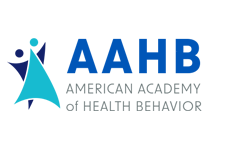Abstract
Food insecurity (FI) has numerous adverse effects on health. Patients who attend student-run free clinics (SRFC) are at high risk for FI, but screenings and interventions are rare. This project measured FI and resource utilization among patients at a SRFC and piloted an intervention. We collected data from patients (N=139, 93% response rate) via 17-item self-report survey from which we generated a tailored resource booklet, and called patients after 5 weeks to assess resource utilization. Seventy-four percent of patients had FI, yet only 40% reported using any type of food assistance resource in the past 12 months. Chi-square analyses found significant differences between patients based on language-preference and FI status. Initial interest in the resource booklet was high, but on follow up (N=57, 69% response rate) booklet utilization was low due to logistical barriers, confusion, and problems accessing the resources. Our results demonstrate that patients experience FI in tandem with barriers to resource access and other social needs.
Author ORCID Identifier
Mackenzie Kelley: 0000-0003-1151-6080
Agnes Kwak: 0000-0002-8823-3305
Ellen Pudney: 0000-0002-7197-5783
Creative Commons License

This work is licensed under a Creative Commons Attribution-Noncommercial 4.0 License
Recommended Citation
Kelley, Mackenzie K.; Kwak, Agnes H.; and Pudney, Ellen V.
(2024)
"Pilot Program to Assess and Address Food Insecurity at a Student-Run Free Clinic in Southeastern Virginia,"
Health Behavior Research:
Vol. 7:
No.
4.
https://doi.org/10.4148/2572-1836.1237





Social Media Handles (optional)
Mackenzie Kelley
Instagram: @Mackenzie.kelley
Twitter: @Mac_kelley1
Linkedin: https://www.linkedin.com/in/mackenzie-kelley001/
Agnes Kwak
Twitter: @agnes_k_1
Linkedin: https://www.linkedin.com/in/agnes-k1/
Ellen Pudney
Twitter: @EllenPudney
Linkedin: www.linkedin.com/in/ellen-pudney-001